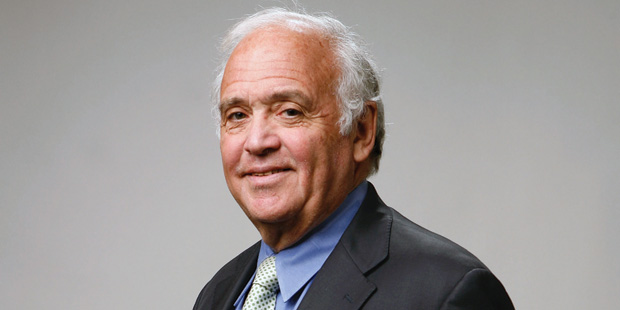Small Acts of Resistance
Printer Friendly VersionMartin Garbus ’59 has had a legendary career as a trial lawyer and free speech proponent, representing Daniel Ellsberg, Lenny Bruce, and Don Imus domestically, and also Andrei Sakharov, Václav Havel, and Nelson Mandela overseas.
At its 35th anniversary celebration this spring, One to World, a cultural exchange organization, gave Garbus a Fulbright Award for Global Leadership. In his inspiring acceptance speech, Garbus described a long-ago “small act” he performed when he was a member of the Fair Trial Committee for Chilean Political Prisoners, and the impact he later learned he had made. Here is an edited excerpt:
In September 1973, Salvatore Allende was killed, and in December, Augusto Pinochet put 12 prominent defendants who supported Allende on trial, including General Alberto Bachelet. Pinochet claimed these were open trials, but no one, including the media, could get in.
I would get up at four in the morning and work my way through the people and the blockade. In court, the military hovered over me. After a few more days, the Chilean government left me alone. In the enormous courtroom I was the only outsider, and the defense lawyers and I were the only civilians.
I saw Bachelet, spoke to him, spent some time with him each day before court started, before and after lunch, and during the breaks. When the defendants went back to the barracks, they were beaten and tortured. They had not seen their families since they were arrested.
Bachelet asked me to deliver his last words to his daughter, and I did. Bachelet’s wife, Angela Jeria, and his 21-year-old daughter Michelle were also arrested and tortured.
The guilty verdict came down a few days later. After weeks in Chile, I left feeling awful. The genocide continued. What I did felt meaningless. Bachelet, 51 years old, died in prison on March 12, 1974.
Michelle Bachelet, after a lifetime of politics, became president of Chile in 2006, totally committed to the punishment of Pinochet and his men.
Several weeks ago, a former New York Times reporter met Michelle Bachelet, who now runs the United Nations Women’s Agency, and called to tell me what he learned. She told him of the enormous significance to her of my coming to the trials. She saw two things in my presence in the courtroom: a commitment from people outside of the United States government to reach in and help even if the government would not do it, and that someone had pierced the Pinochet killing machine. The Pinochet regime was four months old and was seemingly less impregnable. This helped teach her, at 21, of the power of the smallest resistance. Small acts can become extremely significant.
—

